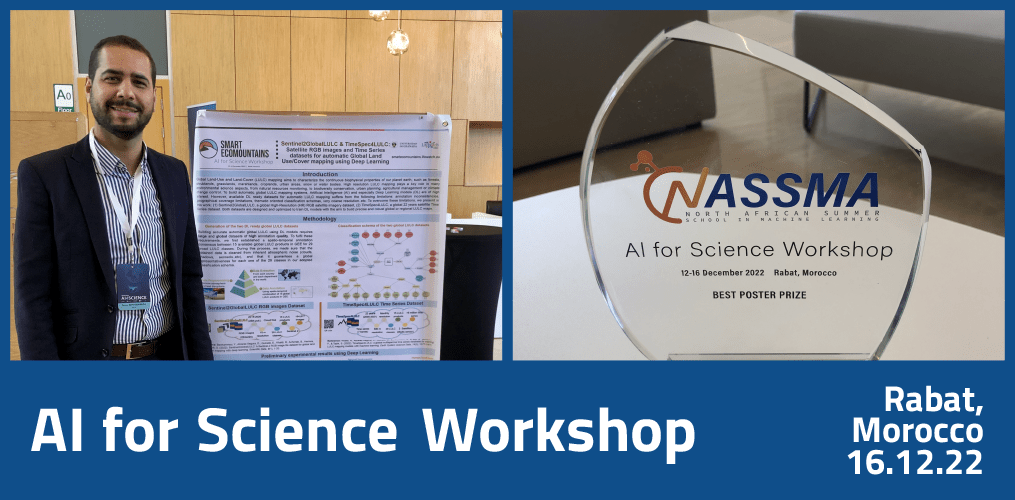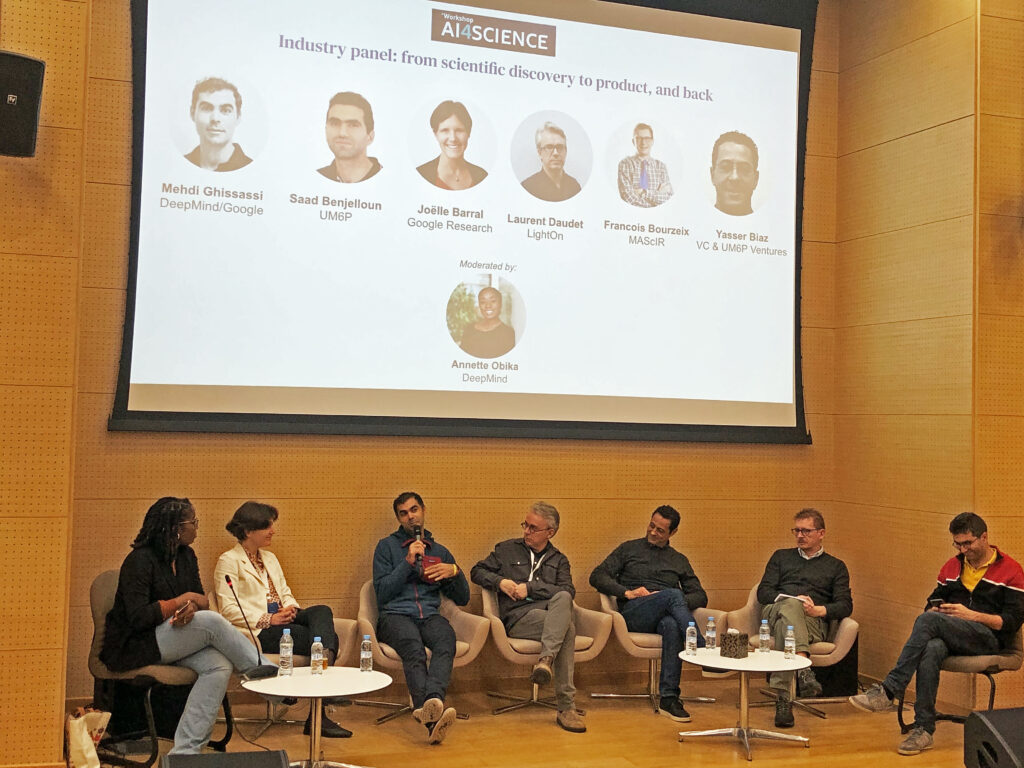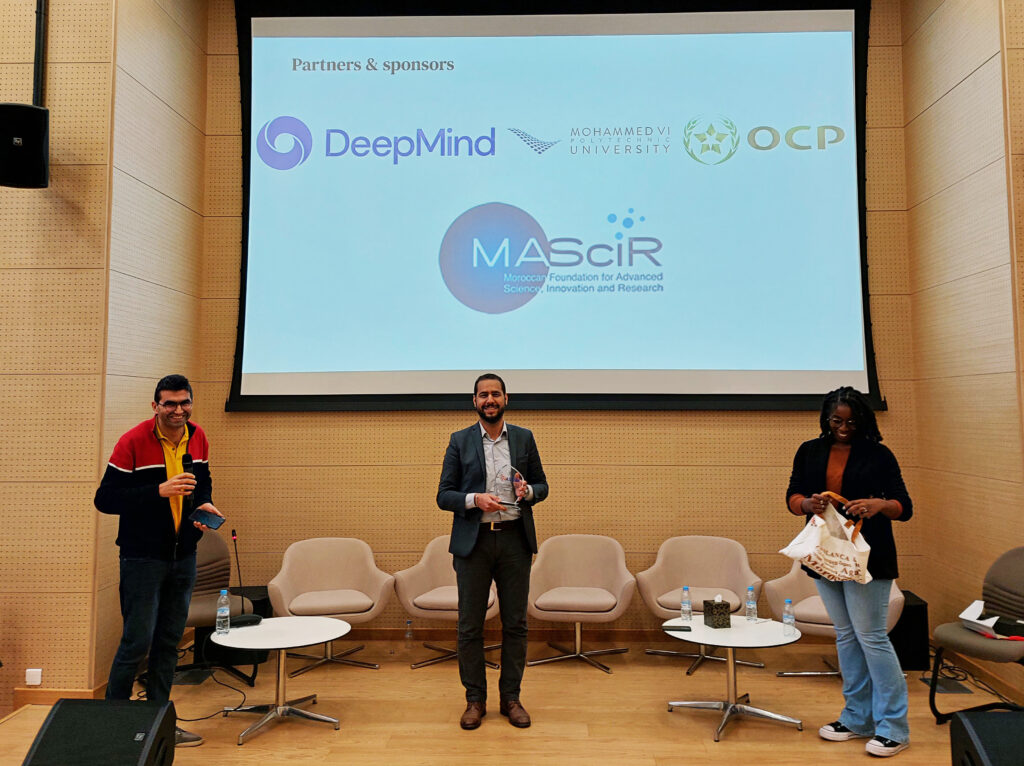
The AI for Science Workshop was held from 12–16 December in Rabat, Morocco, organised by NASSMA, MASCIR, and the Mohammed VI Polytechnic University. Artificial Intelligence offers the promise of revolutionising the way scientific discoveries are done, and tremendously accelerate their pace. However, major challenges still remain in this nascent field of AI for Science, and the goal of this workshop was to address and discuss challenges such as novel methods for AI for Science, tackling the right set of scientific problems, enabling scientific discoveries with AI, and the journey from scientific discovery to a practical application.
LifeWatch ERIC was represented at the event by its Data Science & Artificial Intelligence Assistant, Yassir Benhammou, who exhibited the ERDF-funded SmartEcoMountains project, which combines interdisciplinary perspectives to obtain and integrate data on how global change affects mountain ecosystems. He displayed a poster on the project “Satellite RGB images and Time Series datasets for automatic Global Land Use/Cover mapping using Deep Learning”, presenting two Smart Global datasets, TimeSpec4LULC* and Sentinel2GlobalLULC**, to train Machine Learning models to perform land use/cover mapping. These two datasets are published in two renowned journals: Earth System Science Data (IF-2021=11,81) and Scientific Data (IF-2021=8,5). On the final day of the event, it won the “best poster prize”. LifeWatch ERIC is delighted and honoured by the recognition afforded by the panel, which featured representatives of pioneers in AI such as UM6P, DeepMind, University of Cambridge, the Morrocan Foundation for Advanced Science, Innovation and Research and Google.
For more information on projects in which the infrastructure is involved, please see our related projects page.
*Authors of TimeSpec4LULC: Rohaifa Khaldi, Domingo Alcaraz-Segura, Emilio Guirado, Yassir Benhammou, Abdellatif El Afia, Francisco Herrera, Siham Tabik. Article link: https://essd.copernicus.org/articles/14/1377/2022/
**Authors of Sentinel2GlobalLULC: Yassir Benhammou, Domingo Alcaraz-Segura, Emilio Guirado, Rohaifa Khaldi, Boujemâa Achchab, Francisco Herrera, Siham Tabik. Article link: https://www.nature.com/articles/s41597-022-01775-8

